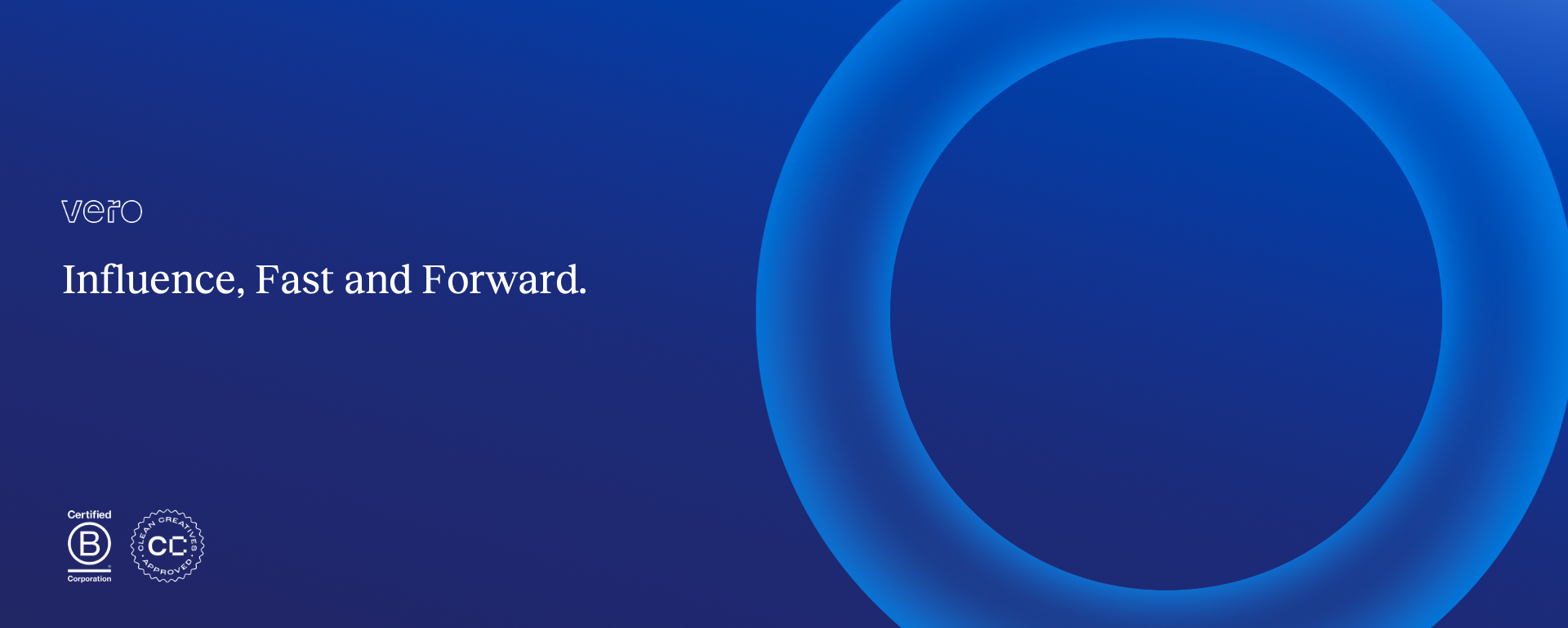

Vero

Central Singapore Community Development Council, Singapore
April 2024
Advertising & market research
Service with Minor Environmental Footprint
Indonesia,
Philippines,
Singapore,
Thailand,
Vietnam
Vero is an award-winning communications consultancy advising some of the world’s leading brands, corporations, and non-profit organizations across Southeast Asia. Vero designs integrated marketing and communications strategies that resonate in the region’s digital ecosystems and fast-growing economies. Vero is based in Indonesia, the Philippines, Singapore, Thailand, and Vietnam, and maintains a partnership in Myanmar. With a diverse team of over 260 professionals specializing in PR, social media, digital marketing, influence, data powered consumer research, media buying and creative services, Vero offers comprehensive solutions for businesses looking to grow their brand presence in Southeast Asia. In 2022, Vero’s commitment to fostering a positive and empowering work culture was recognized as Best Independent Agency to work for in APAC at the PRovoke Media Awards. In 2023, Vero enters PRovoke Media’s Global Top 250 PR Agency Ranking, as the second largest independent firm in Southeast Asia.
Overall B Impact Score
Governance 17.3
Governance evaluates a company's overall mission, engagement around its social/environmental impact, ethics, and transparency. This section also evaluates the ability of a company to protect their mission and formally consider stakeholders in decision making through their corporate structure (e.g. benefit corporation) or corporate governing documents.
What is this? A company with an Impact Business Model is intentionally designed to create a specific positive outcome for one of its stakeholders - such as workers, community, environment, or customers.
Workers 33.7
Workers evaluates a company’s contributions to its employees’ financial security, health & safety, wellness, career development, and engagement & satisfaction. In addition, this section recognizes business models designed to benefit workers, such as companies that are at least 40% owned by non-executive employees and those that have workforce development programs to support individuals with barriers to employment.
Community 25.9
Community evaluates a company’s engagement with and impact on the communities in which it operates, hires from, and sources from. Topics include diversity, equity & inclusion, economic impact, civic engagement, charitable giving, and supply chain management. In addition, this section recognizes business models that are designed to address specific community-oriented problems, such as poverty alleviation through fair trade sourcing or distribution via microenterprises, producer cooperative models, locally focused economic development, and formal charitable giving commitments.
Environment 8.8
Environment evaluates a company’s overall environmental management practices as well as its impact on the air, climate, water, land, and biodiversity. This includes the direct impact of a company’s operations and, when applicable its supply chain and distribution channels. This section also recognizes companies with environmentally innovative production processes and those that sell products or services that have a positive environmental impact. Some examples might include products and services that create renewable energy, reduce consumption or waste, conserve land or wildlife, provide less toxic alternatives to the market, or educate people about environmental problems.
Customers 3.2
Customers evaluates a company’s stewardship of its customers through the quality of its products and services, ethical marketing, data privacy and security, and feedback channels. In addition, this section recognizes products or services that are designed to address a particular social problem for or through its customers, such as health or educational products, arts & media products, serving underserved customers/clients, and services that improve the social impact of other businesses or organizations.
What is this? A company with an Impact Business Model is intentionally designed to create a specific positive outcome for one of its stakeholders - such as workers, community, environment, or customers.